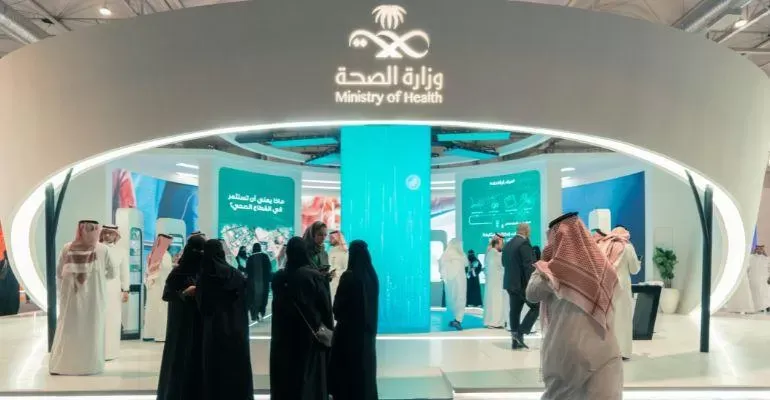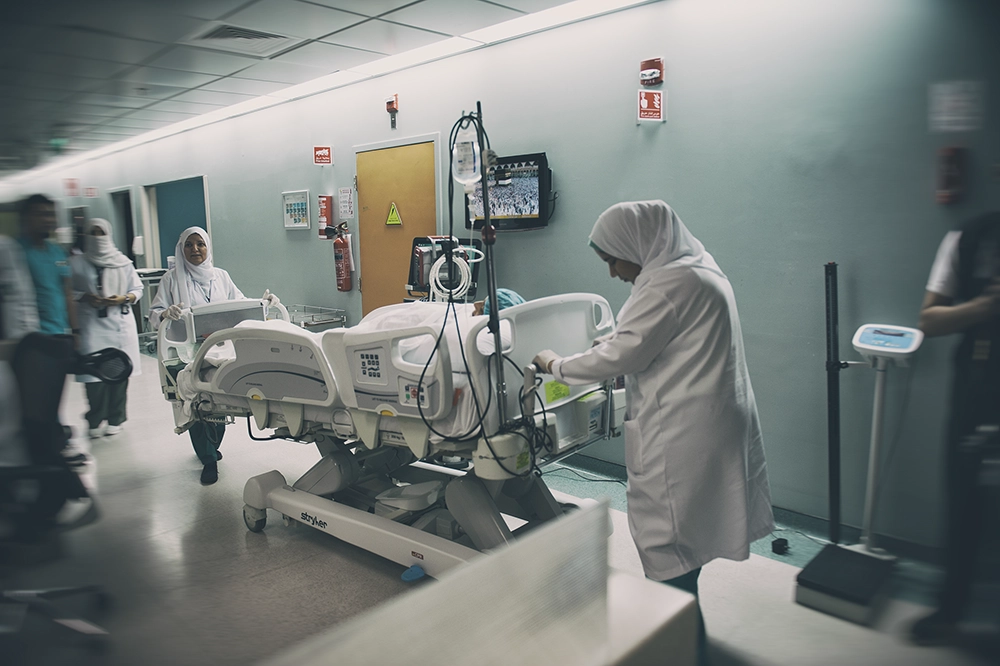When technology meets care, lives change. The partnership between RapidAI and Health Holdings Company brings that promise into clear focus for Saudi Arabia, blending deep clinical artificial intelligence with local healthcare expertise to make diagnosis faster, treatment smarter, and human-centered care more accessible. This is not just a technology rollout; it is an effort to put clinicians, patients, and communities at the center of innovation.
Why this partnership matters
For people sitting in a hospital waiting room, a loved one in distress, or a clinician juggling dozens of decisions a day, the difference between good and excellent care often comes down to timely information. Deep clinical AI, applied thoughtfully, can accelerate diagnosis, highlight subtle findings in medical images, and guide treatment pathways while reducing routine burdens on staff. By combining RapidAI’s technical strengths with Health Holdings’ regional presence and relationships, the collaboration aims to translate complex algorithms into tools that actually help doctors and comfort patients.
Putting people ahead of code
Technology can feel cold. What changes that is the intention behind it. The partnership’s stated focus is human first, making AI work as a trustworthy assistant for clinicians rather than as an opaque replacement. That means designing user interfaces that fit into existing clinical workflows, producing outputs that are easy to interpret in a busy emergency room, and building feedback loops so clinicians can correct, learn from, and improve the models. For patients, the goal is clearer communication, quicker decisions, and care that respects cultural needs and expectations.
Concrete benefits in clinical practice
Imagine a stroke patient arriving at an emergency department: minutes matter. Deep clinical AI can analyze scans rapidly to flag signs that require immediate intervention, enabling faster clot retrieval or thrombolysis decisions. Across radiology, cardiology, and other specialty areas, AI tools can help prioritize critical cases, reduce diagnostic variability, and free specialists to focus on complex decision-making and bedside care. For clinicians, that looks like fewer repetitive tasks, more time for patients, and increased confidence in the care pathway.
Building clinician trust and clinical validation
Trust is earned, not assumed. The partnership emphasizes clinical validation and real-world testing across diverse hospital settings so that performance holds up where it matters, with real patients, varying scanners, and different clinical teams. Training, pilot programs, and iterative deployment help clinicians see how AI behaves, when it is right, and where human judgment must override it. That collaborative testing approach helps avoid the trap of black box tools and creates ownership among local healthcare professionals.

Data stewardship and patient privacy
With great data comes great responsibility. Any deployment of deep clinical AI must protect patient privacy, secure data flows, and comply with local regulations and cultural expectations. The partnership prioritizes governance standards, encryption, and strict access controls, while also working with hospitals to ensure patients and families understand how their data is used. Transparency about how models are trained, what data is used, and how decisions are made is central to maintaining public trust.
Investing in local capacity and skills
Technology alone will not transform a health system. People do. A core component of this collaboration is growing local skills: training radiologists, technologists, and biomedical engineers to use, evaluate, and maintain AI systems. Workshops, fellowship programs, and hands-on clinical mentoring help build a sustainable ecosystem where local experts can adapt tools to regional needs, contribute to research, and lead future innovations. That investment creates jobs, fosters professional growth, and anchors AI expertise within the Saudi healthcare landscape.
Accessibility and regional equity
One of the most transformative possibilities of clinical AI is widening access to specialist-level interpretation in regions with fewer specialists. By enabling smaller hospitals and clinics to access validated AI support, more patients, including those in remote or underserved areas, can receive timely, high-quality assessments. That reduces unnecessary transfers, shortens time to treatment, and can lower costs for the system while improving outcomes for individuals and families.
Ethics, fairness, and culturally informed design
AI systems reflect the data and assumptions used to build them. Ethical deployment requires deliberate attention to fairness and bias mitigation so that tools perform well across different populations. The partnership focuses on culturally informed design, ensuring the models are trained and validated on data that represents the diversity of patients in Saudi Arabia and nearby regions, and that user experiences respect language, values, and clinical norms. Engaging clinicians, patients, and ethicists throughout development helps keep the technology accountable and relevant.
Everyday workflows and long-term system gains
In day-to-day hospital life, the impact may appear modest but meaningful: quicker readouts, prioritized imaging queues, fewer missed findings, and smoother handoffs between departments. Over time, these operational improvements can translate into measurable gains such as reduced length of stay, improved treatment times for time-sensitive conditions, and more efficient use of specialist time. For health systems, that can mean better resource allocation and the ability to serve more patients without sacrificing quality.

Stories that bring the impact home
Behind every metric are human stories: a mother comforted when a scan is read quickly and a treatment plan is made; a trainee radiologist gaining confidence with AI as a second opinion; a rural clinic that can triage patients more effectively and avoid unnecessary travel. These everyday stories capture the heart of what the partnership aims to achieve technology that amplifies compassion and clinical competence rather than replacing them.
Looking ahead with cautious optimism
The path forward is promising but requires humility and patience. Successful AI integration is incremental: pilot projects, continuous evaluation, and adaptation. The partnership’s success will rest on long-term collaboration with hospitals, regulators, clinicians, and patients to ensure tools remain safe, effective, and equitable. If done well, the initiative could become a model for how advanced clinical AI is introduced into health systems across the region.
Final thoughts
At its best, clinical AI is not about flashy demos; it is about small, reliable improvements that make care safer and more humane. The collaboration between RapidAI and Health Holdings Company is a step toward that vision a step that blends technical innovation with local understanding, clinical rigor, and a clear focus on people. When technology is guided by compassion and grounded in clinical reality, it becomes a force that helps clinicians do what they do best: care for patients with skill, dignity, and respect.
Do follow Gulf Magazine on Instagram.
Also Read – Mancini’s Bold New Chapter: Inspiring Leadership at Al Sadd



